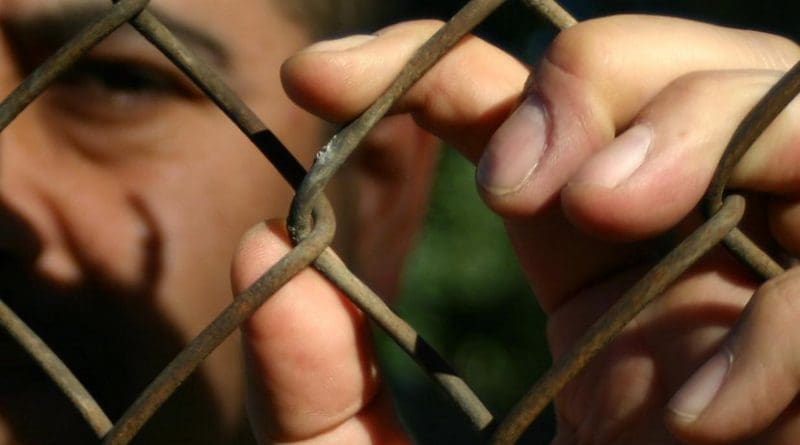Ecuador: Gang Control Of Prisons Enabled Massacres, Says HRW
Overcrowding and lack of state control in Ecuador’s prisons have enabled gang members detained in them to commit several massacres that have taken the lives of over 350 detainees since 2021, Human Rights Watch said, as it released an interactive report documenting one of the deadliest recent massacres.
Using a 3D model of the detention center, Human Rights Watch documented a prison massacre that took place in Guayaquil in November 2021, in which over 60 detainees were killed. Researchers found that prison gangs’ control over parts of the prison enabled the massacre and that authorities failed to respond in an adequate and timely manner to prevent or stop the killings, assist victims’ relatives, and investigate the crimes.
“These violent events are an alarming reminder of the authorities’ failure to effectively control prisons and protect the lives and security of Ecuadorians,” said Tamara Taraciuk Broner, acting Americas director at Human Rights Watch. “Unless President Guillermo Lasso prioritizes addressing overcrowding and wresting control of detention facilities from organized crime, more bloodshed is likely.”
Poor prison conditions, including overcrowding, across the country have contributed to a string of gang-related mass killings in prisons. Since 2021, seven massacres have occurred in prisons in the cities of Guayaquil, Latacunga, Santo Domingo and Cuenca, leaving more than 350 detainees dead and dozens injured. This includes 12 killed in the prison of Santo Domingo on July 18, 2022.
Detention facilities are often controlled by criminal organizations that extort money from detainees and their families, Human Rights Watch found. Many detainees, including those held in pre-trial detention or sentenced for minor crimes, are forced to work with organized crime groups to protect their own physical integrity or to access basic necessities, such as mattresses, bedding, and health supplies. Members of criminal organizations in detention have also reportedly coordinated criminal behavior with gang members outside Ecuador’s prisons.
Human Rights Watch interviewed 30 people in person and by phone, and verified dozens of videos and photographs of the November 2021 massacre and preceding and subsequent events posted to Facebook, TikTok, Twitter, or Instagram. Interviewees included relatives of victims, former detainees, prison experts, prosecutors, and officials from the Ombudsperson’s Office.
Human Rights Watch also reviewed information and statistics provided by the Ombudsperson’s and Attorney General’s Offices about prison conditions and criminal investigations into the massacres, as well as judicial documents and a range of secondary sources, including reports by media outlets and Ecuadorian human rights groups. The police and the national prison authority, called the National Service for Comprehensive Attention for Detained Adults and Teenage Offenders (Servicio Nacional de Atención Integral a Personas Adultas Privadas de la Libertad y a Adolescentes Infract ores, SNAI), did not respond to requests for information.
In September 2021, President Guillermo Lasso declared several “states of emergency” in the country’s prisons that allowed his government to deploy soldiers to control detention facilities. In February 2022, the government adopted a “public policy” on rehabilitation, an action plan to bolster access to health, education, and other basic services for detainees and improve prison conditions.
In December 2021, President Lasso convened a commission of experts to reform the country’s prison system. On June 16, the commission released its final report concluding that prisons in Ecuador are “punishment warehouses” rather than centers for rehabilitation due to their punitive approach and lack of adequate programs. The experts said that overcrowding has increased violence in prisons, and pointed to reports of inhuman and degrading treatment and corruption by police and prison guards, as well as lack of access to medical care for detainees.
As of mid-July, Ecuador’s authorities had not convicted anyone for their part in the November killings or in any other prison massacres occurring in 2021. By December, the Office had opened 26 investigations into “violent events” occurring in prisons in 2021, including the massacres.

